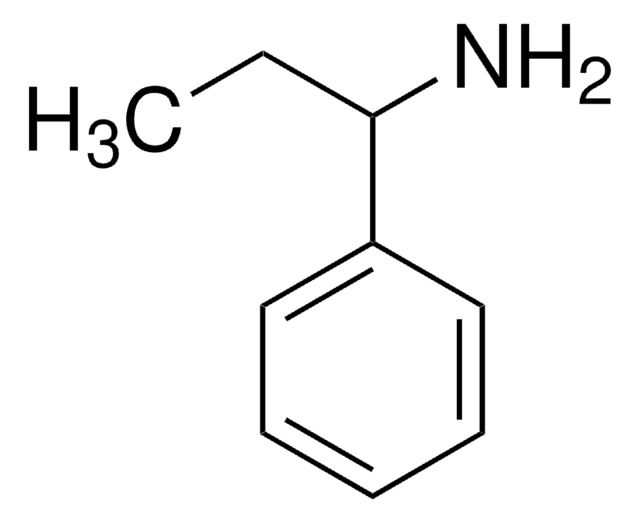M31104
α-Methylbenzylamine
99%
Synonym(s):
(±)-α-Methylbenzylamine, alpha-Methylbenzylamine, (±)-1-Phenylethylamine
About This Item
Recommended Products
Assay
99%
form
liquid
refractive index
n20/D 1.526 (lit.)
bp
185 °C/756 mmHg (lit.)
density
0.94 g/mL at 25 °C (lit.)
SMILES string
CC(N)c1ccccc1
InChI
1S/C8H11N/c1-7(9)8-5-3-2-4-6-8/h2-7H,9H2,1H3
InChI key
RQEUFEKYXDPUSK-UHFFFAOYSA-N
Looking for similar products? Visit Product Comparison Guide
General description
Application
Signal Word
Danger
Hazard Statements
Precautionary Statements
Hazard Classifications
Acute Tox. 4 Dermal - Acute Tox. 4 Oral - Eye Dam. 1 - Skin Corr. 1B
Storage Class Code
8A - Combustible corrosive hazardous materials
WGK
WGK 1
Flash Point(F)
158.0 °F - closed cup
Flash Point(C)
70 °C - closed cup
Personal Protective Equipment
Choose from one of the most recent versions:
Already Own This Product?
Find documentation for the products that you have recently purchased in the Document Library.
Customers Also Viewed
Chromatograms
Our team of scientists has experience in all areas of research including Life Science, Material Science, Chemical Synthesis, Chromatography, Analytical and many others.
Contact Technical Service













